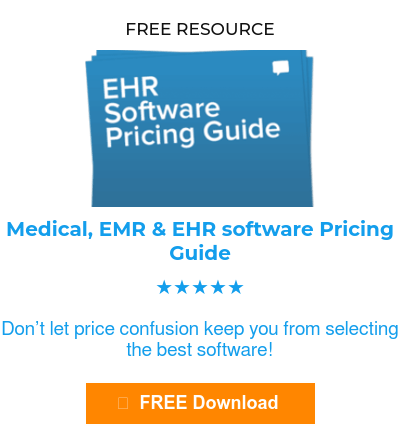The government wants to shift the health industry into the digital age and has provided reimbursement incentives and a deadline for practices to adopt EHR or EMR systems. However, with the vast number of EMR software available, it is challenging to select the right software. Some practices are disappointed and frustrated with their initial software choice and are looking to replace their EHR system.
A well-suited EMR should fit with your practice’s workflow and include all the necessary features for your specialty. It should also help increase your practice’s efficiency and generate financial return on investment.
If your current EHR is under-performing or just not suited to your practice, you should think about replacing your EHR. While switching EMR systems may be a daunting task, understanding what to look for in a new system and what to expect during the process can make it easier.
Should I replace my EHR system?
A 2012 KLAS report found that up to 50% of EHR implementations are replacements for other EHR systems. A Black Book Rankings’ annual poll reported that 1 in 6 medical practices were ready to switch their EHR systems.
Frequently cited reasons to replace an implemented EHR system are:
- EHR software does not fulfill meaningful use or accountable care requirements
- Integration issues with other software or EMR systems
- Missing EHR functionality
- Software usability issues (slow speed, too difficult to use)
- EHR software does not work on mobile devices
- EHR is not customizable or built for your specialty (pre-designed templates, ICD/CPT codes, specialty-specific equipment)
- Dissatisfied with the type of systems architecture (web-based or client server)
- Software vendor not helpful or responsive to requests
- Does not fit with the needs of the practice
- Too expensive without a return on investment
If you are frustrated with your current EHR system and talking to the software vendor has not solved any of your issues, then you should consider replacing your EHR system with one that works better for your practice. Sticking with an unsuitable EHR or EMR system could greatly disrupt your workflow and place a financial burden on your practice.
Tips for replacing your EHR system
Research your options.
Starting your search for a new EHR system should be easier this time around since you’ll have a better idea of what your practice needs in an EMR. However, you will still need to research all your options. Take the time to fully research any EHR candidates. Talk to the EMR vendor or other practices that have implemented that particular EMR to gain a complete understanding of how the EMR system works. Most importantly, make sure any new EHR system you are considering solves all of your most pressing concerns with your current EHR.
Fast and easy implementation.
Letting the implementation process of a replacement EHR system drag on can negatively impact your practice. It can drain your finances and disrupt workflow. Plan your implementation process out fully and ensure the EHR software vendor can help you with your implementation goals and timeline. This will help smoothen the transition to a new EHR system.
Data migration
One concern you may have with switching to a new system is having to migrate all your data from the old to the new EHR. The use of continuity of care documents (CCD) helps with interoperability issues of transferring medical records. If your current EHR system and potential EHR candidate can both generate a CCD, data migration from one system to another will be greatly simplified. However, most EHR systems do not have the ability to easily transfer patient medical records. Some vendors can help with data migration to their EHR system, or you may have to hire a third-party vendor to help with the data extraction and migration. It is important to backup all your EMR files before transferring the data, in case there are any transcription errors.
EHR cost and return on investment
Assess all the costs associated with the new EHR systems you are considering. This includes costs for the software, hardware, installation, and training, as well as maintenance and ASP fees. Ensure the replacement EHR system can also provide you with a good return on investment in terms of helping workflow and medical billing. You also want to ensure the software will allow you to achieve meaningful use and receive government incentive payments.
Medical practices won’t recognize the benefits of EMR systems if the system isn’t a good fit. Instead of dealing with the frustrations of an unsuitable EMR, switching to a better system can greatly benefit your practice. While replacing your EHR may seem daunting, by researching your options and planning out the implementation process, you an greatly simplify the switch to a new EMR.


